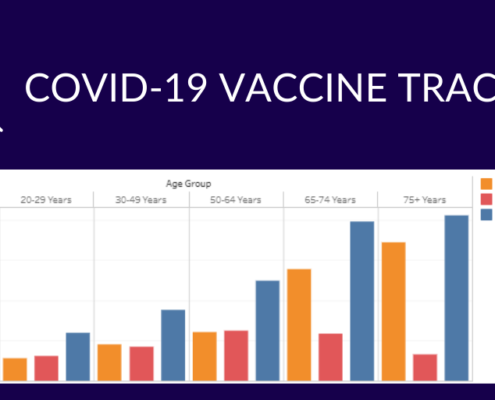Massachusetts’ COVID-19 Dashboard currently shows new COVID-19 hospital admissions by age group only for the most recent 4 weeks.
Using the weekly COVID-19 Raw Data file published by DPH, the Pioneer tracker expands the depicted time period back to mid-2020 permitting a more complete view of COVID’s impact on Massachusetts, including relevant trends over time.
Specifically, for any selected two-week time period, the user can see the absolute number of new hospital admissions for each age group, and also the relevant rate per 100,000 members of each age group’s population. Further, the line graph permits the user to easily see trends over time. Below the chart, we offer recommendations.
Recommendations for the State:
As noted, the tracker does not go back to the beginning of the pandemic, because the relevant raw data extends back only to August 12, 2020. Pioneer asks the state to expand the raw data files identified above to cover the entire pandemic.
Also because of data limitations, the tracker does not allow the user to see the selected information for vaccinated individuals and non-vaccinated individuals separately. The state is providing some data about hospitalizations among the vaccinated population in particular, but that data is not broken down by age group, nor is it organized by time period in a manner that parallels the raw data used for this tracker. Here too, Pioneer calls upon the state to release additional information — specifically, the raw data files identified above should be supplemented to include the same information for the vaccinated and the unvaccinated population separately. This would allow precise and powerful direct comparisons of COVID’s impact on vaccinated vs. unvaccinated people.










